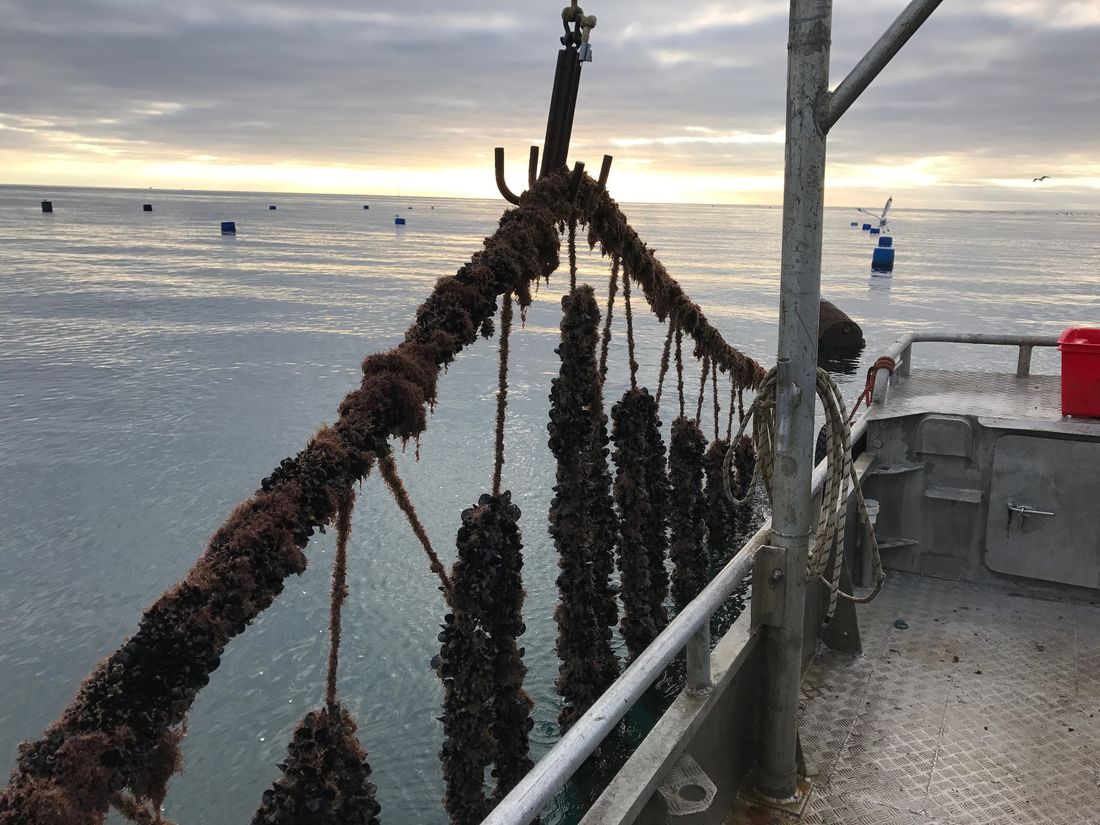About Mussels
The growing cycle starts off with baby mussels (spat) that are either caught naturally in Port Phillip Bay or generated in a purpose built hatchery at Queenscliff.
When the spat reaches 25mm in size it is then ready to be placed at a set rate per metre onto a continuous rope. This seeded rope is then hung onto a submerged long-line on our farm sites. The mussels are then allowed to grow until they reach saleable size, 70mm and greater, this takes about 12 months.
Mussels are filter feeders, so they feed on natural algae with no added artificial food. Our farm sites are water tested every 2 weeks for water quality, to guarantee a top quality growing site at all times.
Mussels are one of the easiest things to cook. First, choose mussels that are alive, closed and heavy with seawater (Fresh Portarlington Mussels). Sometimes their shell will be slightly open; give it a gentle squeeze and it should close - a good sign of life. Second, lightly scrub the mussels then pull out the beards, - a little hairy protrusion used by the mussel to attach to ropes. Now they are ready to cook.
Finally, don't overcook them, as they tend to become tough. Approximately 5 minutes should be enough.
The colour of the flesh will range from orange-red (female) to creamy white (male). Both are delicious.
If you have concerns about a mussel just trust your nose.
Some mussels will not open when cooked but they are perfectly fine, do not throw them out, you just need to pry them open with a knife.
Mussels can be cooked in hundreds of different ways, just add heat and your favourite sauce.
Mussels go with Butter, extra virgin olive oil, sesame oil, soy sauce, ginger, garlic, leek, onion, shallots, spring onions, thyme, parsley, oregano, basil, fresh-ground pepper, chilli, capsicum, eggplant, zucchini, tomato, fennel, white wine, pasta, couscous, rice, bread crumbs, cream coconut milk, saffron, cumin, paprika.


